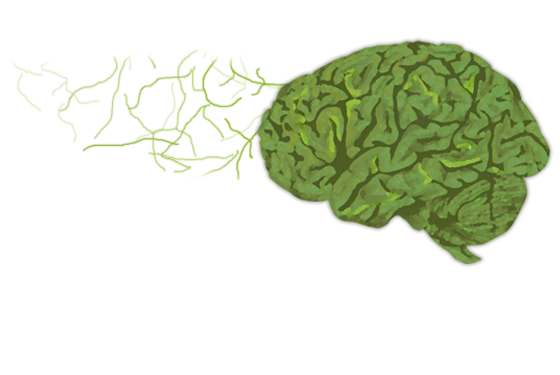Dementia
Understanding Dementia and its Variants: Alzheimer’s Disease, Lewy Body Demetia, and Frontotemporal Dementia
What is Dementia?
Dementia is an umbrella term for a range of conditions characterized by a decline in cognitive abilities and memory, resulting in impairment of daily life activities. It is a significant global health challenge, impacting millions of individuals and their families. At Tennessee Neuropsychology-Knoxville, we will have examined thousands of individuals with dementia, including the three prominent forms:
- Alzheimer’s disease
- Lewy body dementia
- Frontotemporal dementia.
While memory loss is the most common symptom, dementia can also affect thinking, problem-solving, language, and even emotional regulation. The exact cause of dementia varies depending on the subtype, but all forms involve progressive brain cell damage and loss of brain tissue.
How is Alzheimer’s Disease Different from Dementia?
This is a common question. But the fact is that Alzheimer’s disease is a type of dementia. So, the question is similar to asking ‘How is an apple different from a fruit?’ Dementia is the category of condition and Alzheimer’s disease is the specific type of dementia.
Alzheimer’s Disease
A) Early Signs:
In the early stages of Alzheimer’s disease, individuals may experience subtle changes in memory and cognitive function. They may forget recent conversations, appointments, or the location of everyday items. Misplacing objects, difficulty in finding the right words, and becoming disoriented in familiar places are common early signs. Moreover, they may start to withdraw from social activities or hobbies they once enjoyed.
B) Typical Course of Development:
Alzheimer’s disease typically follows a gradual and predictable course of development. As the condition progresses, the cognitive symptoms worsen, and the individual’s ability to perform routine tasks declines. Memory loss becomes more pronounced, affecting both short-term and long-term memory.
Confusion about time, place, and people becomes more frequent, and individuals may have trouble recognizing family members and friends.
In later stages, individuals with Alzheimer’s may require assistance with basic activities like eating, dressing, and using the bathroom. Communication becomes increasingly challenging, and behavioral changes such as agitation, aggression, and anxiety may arise. Eventually, individuals with advanced Alzheimer’s become bedridden and require constant care.
C) Cognitive Features:
Alzheimer’s disease primarily affects the hippocampus, a region of the brain responsible for forming and retrieving memories. As a result, memory impairment is a hallmark feature. Individuals may struggle to retain new information and might even forget significant life events.
Besides memory, cognitive features of Alzheimer’s include difficulty with problem-solving, judgment, and decision-making. Language problems may arise, leading to trouble finding words or following a conversation. Visuospatial skills, such as the ability to perceive objects in the environment correctly, can also be affected.
Lewy Body Dementia
A) Early Signs:
Lewy body dementia (LBD) can present with a variety of early signs, which can make diagnosis challenging. Some common early signs include visual hallucinations, where individuals see things that are not there, and fluctuations in attention and alertness. They may have periods of confusion or drowsiness, followed by moments of clarity. Additionally, individuals may experience muscle stiffness, shuffling walk, and balance problems similar to Parkinson’s disease.
B) Typical Course of Development:
LBD follows a more variable course compared to Alzheimer’s disease. The symptoms may develop gradually or progress rapidly, and individuals may experience periods of stability followed by sudden declines. Fluctuating cognitive abilities are a distinguishing feature of LBD.
Over time, cognitive and motor symptoms worsen, leading to a more profound impact on daily functioning. In the later stages of LBD, individuals may experience severe motor impairment, making it difficult to walk and increasing the risk of falls.
C) Cognitive Features:
Lewy bodies, abnormal protein deposits, are found in the brains of individuals with LBD. These deposits disrupt normal brain function and affect cognition. Memory impairment is not as prominent in LBD as it is in Alzheimer’s disease, but individuals may still experience forgetfulness and difficulty with concentration and problem-solving.
One of the key cognitive features of LBD is executive dysfunction, which refers to difficulties in planning, organizing, and making decisions. Visual and spatial abilities may be affected, leading to problems with judging distances and perceiving objects accurately.
Frontotemporal Dementia
A) Early Signs:
Frontotemporal dementia (FTD) often affects individuals at a younger age compared to Alzheimer’s disease and LBD. The early signs of FTD depend on the subtype but typically involve changes in behavior, personality, and language.
In the behavioral variant of FTD, individuals may display socially inappropriate behaviors, lack of empathy, or compulsive behaviors. Emotional blunting, apathy, and loss of interest in activities they once enjoyed are also common.
In the language variants of FTD, individuals may have difficulty finding the right words, understanding spoken or written language, or expressing themselves coherently.
B) Typical Course of Development:
FTD progresses differently from person to person and is generally more rapid than Alzheimer’s disease. Over time, the changes in behavior and cognitive abilities become more evident and interfere with daily life.
As FTD advances, individuals may struggle to carry out everyday tasks, and personality changes may become more pronounced. They may become socially isolated due to behavioral issues or communication difficulties.
C) Cognitive Features:
Frontotemporal dementia primarily affects the frontal and temporal lobes of the brain, which play a crucial role in personality, behavior, and language.
In the behavioral variant of FTD, the main cognitive features are related to changes in behavior and personality. There may be a lack of inhibition, leading to socially inappropriate actions, poor judgment, and impulsivity.
In the language variants of FTD, the cognitive features center around language difficulties, including difficulty finding words (semantic variant) or understanding and using language (non-fluent variant).
Call Tennessee Neuropsychology: 865-531-9088
Dementia encompasses a range of neurological disorders with distinct characteristics and impacts. While Alzheimer’s disease, Lewy body dementia, and frontotemporal dementia may present with different early signs, follow diverse courses of development, and affect various cognitive functions, they all share the commonality of causing cognitive decline and impairing daily life activities.
Understanding the differences between these subtypes is crucial for early detection, accurate diagnosis, and appropriate care planning. With ongoing research and increased awareness, we can strive to improve the lives of individuals living with dementia and support their families in coping with the challenges of this complex condition.

